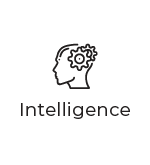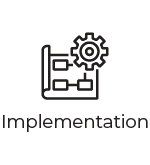Published on August 30, 2019 by Vaibhav Methi
In my last blog, Consulting industry – Trends and challenges, I discussed the transition in the consulting industry and some of the changes impacting it. This blog takes a further detailed view of the disruption that is beginning to affect every firm in the industry and will likely change the face of consulting forever.
Why now?
Two factors – opacity and agility – that for a long while had made consulting immune to disruption no longer shield the industry. Services provided by consulting firms were like a black box, churning out solutions without providing transparency of the process involved. Additionally, it was hard to ascertain the effectiveness of a consultancy even after completion of a project, as a lot depended on factors such as execution and a change in management, resulting in the same business models being followed and capitalized on.
The wall built by these barriers, which kept the winds of revolution at bay, is now crumbling fast, driven primarily by technology.
What is happening?
With the advent of higher speeds, incremental deliverables, and cloud technology, the focus of projects and consulting skills is shifting to customer needs. The emphasis will now be on agility, analytics, business process redesign, and customer experience, transforming the entire fabric of consulting firms. We explain below the disruption the four functions of management consulting – intelligence, insights, specialization, and implementation – are witnessing.


Intelligence: Historically, frameworks, models, and templates were the USP of consulting firms, but the internet age has brought about a democratization of knowledge, enabling anyone to access information and apply the best practices which were erstwhile trade secrets. There is a growing shift toward asset-based consulting – packaging of ideas, processes, frameworks, analytics, and other intellectual property – for optimal delivery through technology. This has given birth to on-demand models, where basic consulting insights are provided at the click of a button, lowering expenses, as they are spread over a longer period (usually through a subscription or license-based fee). McKinsey, through its arm McKinsey Solutions, has already pioneered this model, also referred to as “continuous consulting”, as it provides a continuous flow of income.

Insights: Growth of strategy as a function has led to corporates building their own internal strategy teams. This has been fueled by the availability of alumni of prestigious consulting firms. McKinsey alone has 30,000 alumni; alumni strength of the Big Three combined is approaching 50,000. This alumni is hired by corporates’ strategy teams and are able to extract the best terms of engagement, being insiders to the management consulting practices. Additionally, the management consulting process has become less mysterious and more transparent as training programs and other material provide the required tools for corporates to implement insights, eliminating the need to hire a specialized consultant.

Specialization: Today, any firm can consult sector specialists without engaging big consulting firms and paying for the entire consulting package. Learning networks, like GLG, vet experts similar to how consultancies like McKinsey would, before hiring them to answer clients’ questions on an on-demand basis. Demand for this service has grown healthily: in 2008, companies spent less than USD100m on expert learning networks. By 2017, this number had stretched to USD800m. Integrity Research estimates that spending will exceed USD1bn before 2021.

Implementation: Boutique firms and freelancers are starting to outperform mainstream consultants, with little to no overhead fee and clients favor their specialization over general consultants’. Eden McCullum is one such provider, offering its clients access to a large network of senior, highly experienced, independent consultants. Here, clients benefit from value, flexibility, and control, as they get to select consultants they want to work with. This model is referred to as “collaborative consulting”, as it involves regular collaboration with consultancies in the network. It also results in low fixed and high variable costs. Market research companies (such as Gartner and Forrester) relying on data-driven and analytics-enabled consulting, and database providers like IMS Health, are also eating into the profits of traditional consultancy firms. Some of these modular providers are extending their own boutique consulting services, offering advice based on research they specialize in.
To summarize, shrinking technical work means key differentiators will change. Non-technical areas, such as business model design and change management, will likely become more dominant differentiators as technical activities become more of a commodity. Quant consultants and robo-advisors, through machine learning algorithms, are capable of building computer models that make sense of complex phenomena by detecting patterns and inferring rules from data, providing profound insights and helping make complex decisions – something even the largest and smartest consulting teams find difficult.
How Acuity Knowledge Partners can help consultants ride the disruption wave
Our services are based on the triad of technology, research, and data expertise, which ensures that the research we provide is technology-backed, based on exhaustive data points, and driven by the best insights. Leveraging our proprietary technology solution Business Excellence and Automation Tools (BEAT) and highly qualified professionals with deep expertise who work with more than 200 global data providers, we not only ensure that the interests of the biggest names in the consulting world are well guarded, but also equip firms to stay a step ahead when the rules of the game begin to change.
Sources:
https://hbr.org/2017/07/ai-may-soon-replace-even-the-most-elite-consultants
https://hbr.org/2013/10/consulting-on-the-cusp-of-disruption
https://www.cbinsights.com/research/disrupting-management-consulting/
https://www.businesswire.com/news/Top-5-Emerging-Trends-Impacting-Global-Management
https://www.consultancy.uk/news/
https://www.gep.com/mind/blog/how-technology-impacting-management-consulting
https://medium.com/@phanimarupaka/house-of-cards-disruption-for-consulting-4-0-ece972e67e8b
What's your view?
Comments
15-Sep-2020 01:23:41 am
Like the way we think?
Next time we post something new, we'll send it to your inbox







